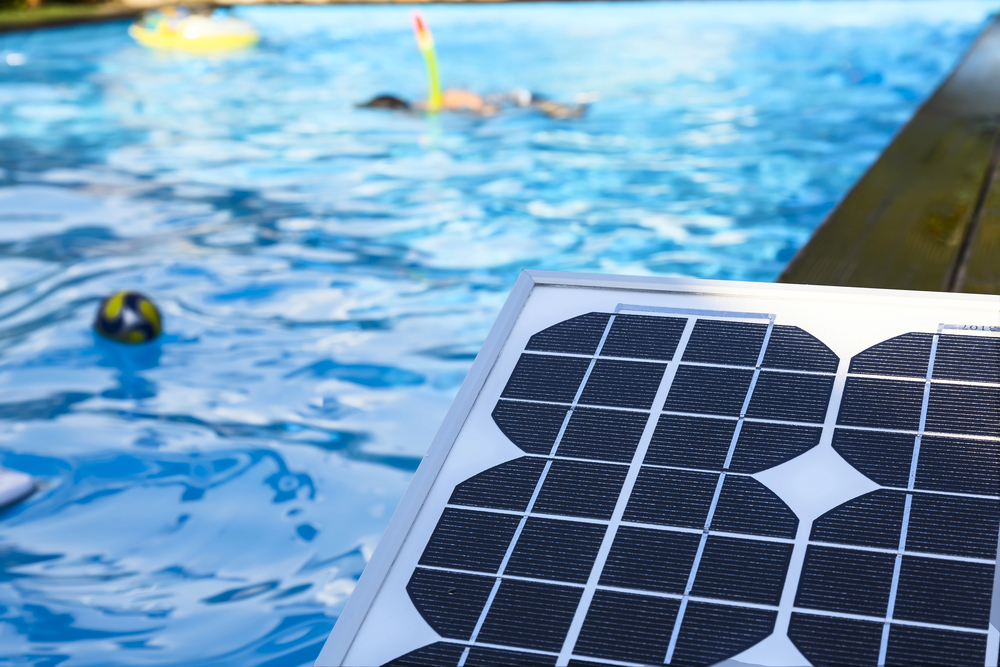Gas Vs. Electric Pool Heater: Which Is Better?

Choosing between a gas vs. electric pool heater is a common quandary for homeowners who want to enjoy a warm, comfortable swimming experience year-round. Both types of heaters offer distinct advantages and operate differently. For this reason, it’s important to know how each system works, the costs involved, and the long-term benefits.
Pool owners often consider efficiency, operating expenses, environmental impact, and installation requirements before selecting the best option for their needs.
How Gas Pool Heaters Work
Gas pool heaters use natural gas or propane to generate heat. Water flows through a series of pipes within the heater where it is warmed by the combustion process. The heated water is then circulated back into the pool.
Gas heaters can reach high temperatures quickly – ideal for pools that are used sporadically or for homeowners who want fast heating on demand. These systems are especially beneficial in colder climates where achieving and maintaining a comfortable pool temperature can be challenging.
The installation of gas heaters is typically straightforward for properties that already have a gas line. Homeowners should consider that fuel costs fluctuate, so operating expenses may differ seasonally. Despite this, the instant heat delivery makes gas a popular choice for families and commercial pools that require predictable performance.
How Electric Pool Heaters Work
Electric pool heaters operate by passing water through an electrically powered heating element. Heat is transferred to the water, which is then circulated back into the pool. These heaters are known for consistent performance and quiet operation.
They are also cleaner than gas units because they do not produce combustion byproducts. Electric systems are often paired with existing electrical infrastructure. This makes them accessible for homes without gas lines.
Electric heaters tend to heat water more slowly than gas units, but they bring greater control over temperature settings. For homeowners who swim regularly and prefer a steady, moderate temperature, an electric system can be a reliable and efficient choice.
Monthly energy bills may be higher depending on local electricity rates, yet the absence of fuel handling or storage adds convenience and safety.
Cost Considerations
The initial cost of a gas pool heater can be lower than that of an electric system, though operational expenses differ. Gas prices fluctuate, and pools heated frequently can accumulate higher fuel bills over time. Electric units generally cost more upfront, but electricity rates are often more stable, and energy-efficient electric heaters can reduce long-term expenses.
Homeowners evaluating gas vs. electric pool heater options should also consider maintenance costs. Gas heaters require periodic inspections for combustion efficiency and venting. On the other hand, electric heaters may need less frequent servicing but depend on a reliable electrical supply and properly sized breakers.
Environmental Impact
Environmental impact is an increasing factor in pool heating decisions. Gas heaters emit carbon dioxide and other byproducts from combustion and contribute to greenhouse gas accumulation. Electric heaters produce no on-site emissions, and their environmental footprint can be further reduced if powered by renewable energy sources.
Many homeowners use solar electric systems to offset electricity use and reduce environmental impact and operational costs.
Although solar pool heaters are not always practical for rapid heating, they can supplement either gas or electric systems, capturing free energy from the sun to maintain comfortable water temperatures. Using solar assistance reduces the load on traditional heating systems and supports sustainable energy use.
Performance and Longevity
Performance expectations differ between gas and electric heaters. Gas systems deliver heat rapidly, allowing for quick pool temperature adjustments. This is beneficial for spontaneous swimming or when scheduling multiple swim sessions in a single day. Electric units provide steady, controlled heating and are well-suited for pools used consistently over long periods.
Longevity also differs. Gas heaters often last around 8 to 12 years, depending on usage and maintenance, while electric heaters can operate effectively for 10 to 15 years. Choosing high-quality equipment and scheduling routine maintenance contribute to longer operational life, regardless of the system type.
Installation and Space Requirements
Gas heaters generally require ventilation and gas line access, so location planning is important. The heater must be placed in a safe area away from flammable materials, and proper venting provides for efficient operation.
Electric heaters are easier to install in tight spaces because they do not need exhaust systems, though electrical capacity must match the unit’s requirements. Homeowners should consider the available space, electrical panel capacity, and proximity to the pool when selecting a system.
Making the Right Choice
Deciding between a gas vs. electric pool heater involves balancing speed, efficiency, cost, and environmental considerations. Homeowners who want fast heating and the ability to warm the pool on demand may prefer a gas system.
Those prioritizing consistent heating, low maintenance, and compatibility with renewable energy sources may find an electric system more suitable. Combining either system with solar pool heaters can extend the swim season while reducing energy consumption and cost.
Consulting professionals who offer full solar services can help determine the best combination of technologies for a specific pool and location. Expert advice can assist with proper sizing, installation, and integration with existing systems.
Solar Energy Solutions of America – Helping You Heat Your Pool Wisely
Solar Energy Solutions of America guides homeowners through the process of selecting and installing the right pool heating system. Whether a customer chooses a gas or electric setup, we focus on maximizing efficiency, longevity, and comfort.
Our team handles all aspects in-house, from consultation to installation, ensuring a hands-on approach that keeps you informed every step of the way.
We provide options to integrate solar pool heaters or solar electric systems to lower dependence on conventional energy. Combining traditional and renewable technologies creates pool heating solutions that reduce energy use and enhance swimming comfort and enjoyment.
If you have any questions about Solar Energy Solutions of America or would like to schedule an appointment, reach out to us. We are ready to help you make the best choice for your pool and lifestyle.
